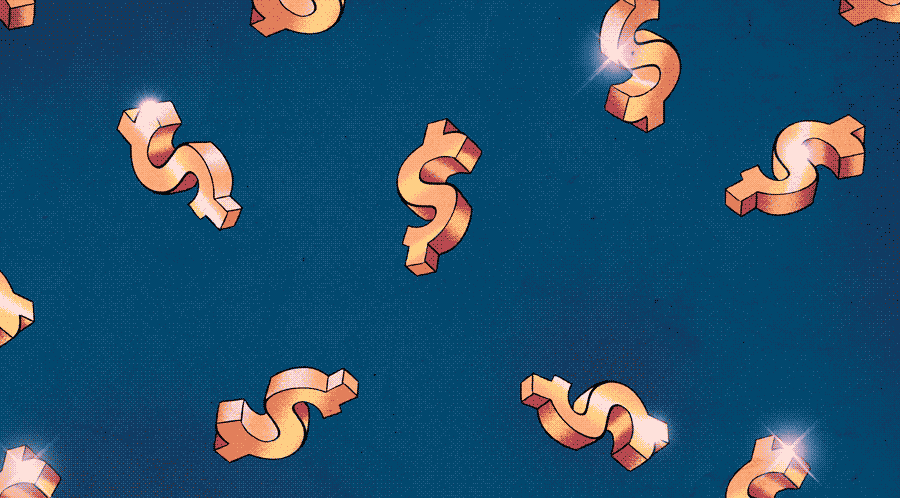President Joe Biden’s American Families Plan unveiled last week included a substantial increase to the capital gains tax — taxes on earnings from investments — but its effect on venture capital may not be as straightforward as it appears.
Subscribe to the Crunchbase Daily
Biden’s proposed tax overhaul includes hiking the long-term capital gains taxes from 20 percent to up to 39.6 percent for high earners (or 43.4 percent if one includes Medicare surtax) — basically taxing investment earnings as income.
“I think many are taking a wait-and-see approach,” said Gautham Deshpande, an audit partner at EisnerAmper’s San Francisco office who specializes in venture capital funds among other types of funds.
Deshpande said it is possible if some revision to the tax is approved, venture capitalists could change aspects of how they invest, but added there also are ways around the tax that many investors will likely consider to hold onto more of their money.
Section 1202
Perhaps the most obvious benefit that early-stage investors can use is Section 1202 of the IRS Code. The tax law allows for those who invest in Qualified Small Business Stock (QSBS) — which includes tech startups as long as they’re C corporations — to exclude 100 percent of the capital gains made on those investments, if the stock is held for at least five years and is acquired at issue.
The QSBS exclusion — signed into law under the Clinton administration and expanded under the Obama White House — has a limit of $10 million or 10x the basis of the stock sold, whichever is greater.
The law does not apply to LLCs and is often overlooked by taxable investors who could benefit by investing in a C corp that is below a $50 million valuation, said Brian Gaister, a co-founder and managing partner of Maryland-based SaaS Ventures.
“I think (1202) is often missed,” Gaister said of investors’ knowledge of the tax law. “As it relates to venture capital — if you invest in a C corp that meets the criteria — any increase in capital gains tax is minimized by utilizing the benefits of QSBS,” he said.
“It’s the only tax loophole in the world that should exist,” said Elizabeth Edwards, founder and general partner at early-stage investment firm H Venture Partners.
Edwards said 1202 is basically the “commercialization of R&D work,” allowing people to invest in innovation which in turn keeps the U.S. technology ecosystem among the top in the world. In essence, it helps subsidize the risky nature of venture and invest in advancement.
While the QSBS has exclusions, Edwards added those exclusions typically affect large investment firms — including private equity — that invest sizeable growth rounds in well-established companies with significant market traction. They are not investing in cutting-edge tech and innovation, she said.
“These are not guys investing in actual startups,” she said.
Shifting strategies
Another option venture capitalists would have to minimize the capital gains impact from Biden’s proposal would be holding onto stock if they took a portfolio company public or sold one to a company already trading in the public markets, Deshpande said.
That would allow the investor to avoid paying taxes — perhaps long enough for the tax to be changed again — but also take money off the table for further investment.
“There would be a balance between how much tax you want to pay and how much you want to have for another investment,” he said.
Deshpande added late-stage investors may also change some of their strategies around investing, becoming more risk averse and looking for higher returns if they know those returns are going to be taxed heavier. However, it also is important to note many of those larger funds are heavily made up of money from pension funds and endowments — which are excluded from the capital gains tax no matter the rate.
Gaister said he could imagine VCs who are approaching a liquidity event with a portfolio company hastening the pace of a deal to get it closed before the end of the year — or whenever the tax increase is approved.
“You could see an acceleration of deals that are close,” he said. “Right now there is uncertainty.”
Nevertheless, after the plan was announced some in venture came out strongly against the proposal. In a statement, the National Venture Capital Association (NVCA) said it “was disappointed to see that the American Families Plan, unveiled by the White House today, includes unprecedented tax increases on long-term capital gains. Such a significant increase to capital gains rates will reduce long-term investment and entrepreneurship by making short-term economic activity relatively more attractive.”
Bobby Franklin, president and CEO of NVCA, added in the statement, “tax increases on capital gains, including carried interest, undercut this effort by specifically targeting the very entrepreneurs and long-term investment funds whose participation will ultimately determine whether the Build Back Better agenda is successful.”
Don Butler, managing director of Thomvest Ventures, said in his 20 years as a venture capitalist he has witnessed a few attempts by new administrations to change the capital gains tax rate and it seemingly has been directed more at private equity or hedge funds than venture capital, and its support of startups and innovation.
“What I’ve seen as a response from those interested in protecting the innovation economy, however, has been to point out the job creation that venture investing leads to,” he said. “I think it’s easy to underestimate this, but I’ve seen studies in the past that show that venture investment leads — particularly with successful companies that go public — to significant job creation and national competitiveness in tech more generally.”
For now, those in venture seem willing to wait to see what, if any, increase is passed before shifting their investment strategies and plans.
“I think there was a general expectation this would happen,” Deshpande said. “I don’t have a lot of clients getting worried about it now.”
Illustration: Li-Anne Dias.

Stay up to date with recent funding rounds, acquisitions, and more with the Crunchbase Daily.







![Illustration of stopwatch - AI [Dom Guzman]](https://news.crunchbase.com/wp-content/uploads/Halftime-AI-1-300x168.jpg)
67.1K Followers